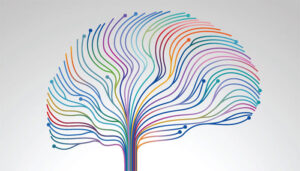Topic: Alzheimer’s
As we grow older, we all experience cognitive change. Our brain, like the rest of our body, naturally changes as we age. Changes in cognition can be subtle and most changes are normal. Misplacing keys or taking longer than usual to recall a person’s name or a word are common examples. There are times, however, when we notice changes that are consistent, repetitive, and may suggest cognitive impairment. …
Don’t Go Down the River of Denial; Recognize the SignsRead More »
It’s not unusual to hear the terms dementia and Alzheimer’s used interchangeably, though they are not synonymous; they have different meanings. Dementia is an umbrella term that describes a broad range of symptoms; dementia is a syndrome, not a disease. Dementia is a decline in cognitive function that is typically not reversible. …
What’s the difference between dementia and Alzheimer’s disease?Read More »
A lack of insight or awareness is when a person living with a form dementia or a brain injury is unable to recognize changes in their behavior and emotions.
Adult children may interpret this as a parent being difficult or in denial. However, the part of the brain that is damaged, often by Alzheimer’s, Lewy Body dementia, or a stroke, is what is affecting the individual’s inability to see these changes. It is related to loss of activity in areas in the front of a person’s brain, known as the frontal lobes. …
Caring for someone living with Alzheimer’s, another dementia, or Parkinson’s, whether it’s a spouse or parent, can be stressful, and at times, overwhelming, even on a good day. Too much stress can be harmful to you both. It’s also not uncommon for family caregivers to be so concerned with the needs of the person in their care that they lose sight of their own well-being. …
Art can be created and experienced in many forms. Dance. Collage. Painting. Drumming. Pottery. Singing. Acting. Writing. Gardening. Knitting. Poetry. Sewing. Storytelling. Drawing. Even cooking.
The effect of experiencing or making art when living with dementia can be profound. We see this every day in our work as Creative Engagement Specialists and Care Managers. …
Washington state primaries are just around the corner. Today, July 15, 2022, marks the start of the 18-day voting period (through Election Day, Tuesday, August 2). Ballots have been mailed and Accessible Voting Units (AVUs) are available at voting centers.
Whenever an opportunity to vote is on the horizon, our team often fields questions from family members and other supports about voting when the person in our mutual care is living with a cognitive impairment. …
There is no single test that can determine if a person has Alzheimer’s disease. But a combination of several different tests can identify if memory and thinking problems are due to one of the many conditions that result in symptoms of dementia.
By process of elimination, doctors can determine what may be the root cause of thinking problems. Some conditions are treatable. Others are not. …
The holidays are often filled with high expectations, requiring lots of energy and engagement in non-stop activities. For individuals and families living with Alzheimer’s or another dementia, it can be challenging. A time of high anxiety.
Festivities can agitate, confuse, and overstimulate someone living with dementia. Meanwhile, caregivers can feel anxious, frustrated, and lonely. To minimize the anxiety and encourage an inclusive, more enjoyable holiday season for the entire family, a little advance planning can go a long way in ensuring everyone has a wonderful time. …
Dementia: Tips to Make the Holidays Inclusive and More EnjoyableRead More »
Having concerns about a loved one’s well-being, especially when they are older, is normal. Have you noticed some changes? Is there something that seems off or unusual, perhaps atypical to your loved one’s usual demeanor, behavior, or personality?
Changes and adjustments are normal for all of us during our lifespan, but sometimes they warrant a closer look. Striking the right balance between fostering independence, respecting autonomy, and ensuring safety can be a struggle for those of us who are part of an older adult’s life. …
While the COVID-19 pandemic has presented us with challenges, it has also taught us lessons. Likely, you have tapped into your emotional reserves and discovered how resilient you are during this time.
Brain health, of which mental health is an essential component, has been at the forefront of many conversations with family, friends, and colleagues during the pandemic. We have all experienced varying levels of uncertainty, stress, anxiety, and grief during this time. Our brain health has helped us manage and process these emotions as well as exercise resilience.
…











